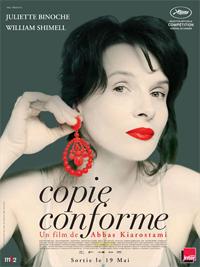A blog formerly known as Bookishness / By Charles Matthews
"Dazzled by so many and such marvelous inventions, the people of Macondo ... became indignant over the living images that the prosperous merchant Bruno Crespi projected in the theater with the lion-head ticket windows, for a character who had died and was buried in one film and for whose misfortune tears had been shed would reappear alive and transformed into an Arab in the next one. The audience, who had paid two cents apiece to share the difficulties of the actors, would not tolerate that outlandish fraud and they broke up the seats. The mayor, at the urging of Bruno Crespi, explained in a proclamation that the cinema was a machine of illusions that did not merit the emotional outbursts of the audience. With that discouraging explanation many ... decided not to return to the movies, considering that they already had too many troubles of their own to weep over the acted-out misfortunes of imaginary beings."--Gabriel García Márquez, One Hundred Years of Solitude
Wednesday, February 15, 2017
Certified Copy (Abbas Kiarostami, 2010)
In the middle of Certified Copy, just after the film has taken a startling narrative turn, we see a man apparently angrily berating his wife. It looks like a correlative to the tensions that seem to be building between the film's protagonists, the unnamed woman who is labeled Elle in the screenplay (Juliette Binoche) and the writer James Miller (William Shimell). But then the man turns slightly and we see that his tirade is actually directed at someone he's talking to on his mobile phone. When our protagonists talk to the man and the woman, they turn out to be an affectionate couple. (The man is played by the celebrated screenwriter Jean-Claude Carrière, the woman by Agate Natanson.) Nothing is what it seems in Certified Copy, of course, but if you've watched any of Abbas Kiarostami's films, you're probably ready to be tricked or tantalized. That "startling narrative turn" I mentioned above completely changes our assessment of Elle and James, who begin the film as apparent strangers to each other, and then at mid-film start apparently pretending to be a married couple who, by the end of the film, are supposedly revisiting the scene of their honeymoon 15 years earlier. The pivotal scene in Certified Copy takes place in a cafe in Lusignano, where James steps outside to take a phone call. The owner's wife (Gianna Giachetti) assumes that Elle and James are a married couple and asks why they speak English with each other, since she's French. Elle doesn't set the woman straight about their relationship, and there is a sudden break in which the woman's back is turned to the camera and she whispers something we don't hear to Elle. Then, when James returns, they pretend to be (or become?) the married couple, and he speaks to her in French. There are a few tantalizing hints that they may in fact be a long-married couple reuniting after a separation, having pretended at the start of the film to be strangers to each other. There is an equally strong suggestion that they may be strangers who have discovered a mutual love of role-playing. Or there is a third possibility, that the film depict two actualities: i.e., that its first half depicts one couple and its second half the other. If so, Certified Copy resembles Mulholland Dr. (David Lynch, 2001), with its unexplained mid-film narrative disjunction, more than it does the other films about enigmatic relationships or disintegrating marriages to which it has frequently been compared: Journey to Italy (Roberto Rossellini, 1953), L'Avventura (Michelangelo Antonioni, 1960), and Last Year in Marienbad (Alain Resnais, 1961). The title of the film refers to the book James has written about art, in which he argues that the distinction between an "original" work of art and a copy of it is irrelevant. Consequently, Kiarostami, who wrote the screenplay with Caroline Eliacheff, plays with duplicates and mirrors throughout the film, with the help of cinematographer Luca Bigazzi. There is, for example, a wonderfully tricky shot of James standing by a motorcycle with his image reflected in a mirror inside a doorway while Elle's is reflected in the motorcycle's distorting wide-angle mirror. In short, Certified Copy is a dazzling tease of a film that gets inside your head. Whether it's more than that probably depends on how willing you are to unpack its intricacies.
Subscribe to:
Posts (Atom)
